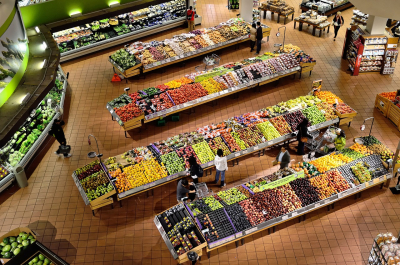Understanding celiac disease
Celiac disease is a genetic autoimmune disorder that triggers adverse reactions in individuals who consume gluten, a protein found in wheat, rye, and barley. Symptoms can range from digestive issues to severe nutritional deficiencies. For those diagnosed with celiac disease, adhering to a strict gluten-free diet is mandatory, not optional. However, this dietary requirement comes with considerable challenges, particularly in terms of cost.
The financial impact of gluten-free living
Ashley Hickey, who also has celiac disease, is well-versed in the risks of cross-contamination and the higher costs of specialty gluten-free ingredients. Despite her familiarity, she was astonished by the financial impact of her son’s diagnosis. After reviewing her June grocery bills, she discovered her family had spent an astonishing $2,600 on food alone, excluding drinks, treats, toiletries, and dining out. This revelation highlighted the significant expense of maintaining a gluten-free diet.
Celiac Canada reports that gluten-free products are typically 200 to 500 percent more expensive than their gluten-containing counterparts. Melissa Secord, the executive director of Celiac Canada, noted that while gluten-free items have always been pricier, the gap widened significantly during the pandemic due to supply chain issues and increased production costs. Secord explained that manufacturers must adhere to strict standards and use more complex ingredients, contributing to the higher prices.
Daily struggles and coping mechanisms
Heather Yule from Bedford, N.S., who has celiac disease along with her two teenage daughters, shares Hickey's concerns. Yule emphasizes that their need for gluten-free food is not a fad but a medical necessity. Despite making meals from scratch and purchasing in bulk, Hickey finds herself working 70 to 80 hours a week at her software company to afford their diet. Additionally, she meticulously logs every gluten-free purchase for tax purposes, a time-consuming task.
The Canadian tax system offers minimal relief. Currently, there is an "incremental medical claim" that provides about $30 to $50 for most individuals. However, Celiac Canada is advocating for a more substantial flat medical tax claim of $1,000 per year. Secord criticizes the existing system as cumbersome and largely ineffective, calling for more practical solutions to support those with celiac disease.
Government and community responses
The Department of Finance has expressed openness to suggestions on improving support for Canadians with celiac disease. However, they have not committed to any specific changes, stating it would be "inappropriate to speculate."
Secord emphasizes that those with low incomes are most affected. People on social assistance are often ineligible for tax credits, and gluten-free items are scarce in food banks, exacerbating food insecurity. Yule also highlights this disparity, noting that while her family has food security, many do not and are forced to consume gluten despite medical risks because they cannot afford alternatives.
Positive developments
Despite these challenges, there are positive signs. More restaurants are beginning to offer gluten-free options. At East Coast Smokehouse in Middle Sackville, N.S., owner Paula Drew has made significant efforts to cater to those with celiac disease. Drew states that 71 percent of her meals are gluten-free, demonstrating that providing safe dining options is feasible. She advocates for simple measures like dedicated fryers and proper handling to prevent cross-contamination, with minimal cost differences for gluten-free bread and pasta.
Living with celiac disease involves a continuous battle against dietary restrictions and financial strain. Individuals like Ashley Hickey and Heather Yule, alongside organizations like Celiac Canada, are working tirelessly to manage these challenges and advocate for better support. While progress is slow and often met with resistance, the growing awareness and small victories in food service provide hope for a more inclusive and supportive environment for those with celiac disease.
source: CBC


 Are you thinking about investing in real estate in Albania? Looking for a safe and profitable opportunity? Balfin Real Estate
Are you thinking about investing in real estate in Albania? Looking for a safe and profitable opportunity? Balfin Real Estate The issue of tariffs has gained significant attention in Canada following months of warnings from U.S. President Donald Trump. Tariffs
The issue of tariffs has gained significant attention in Canada following months of warnings from U.S. President Donald Trump. Tariffs The Canadian government has taken decisive action following new U.S. tariffs. Prime Minister Justin Trudeau announced immediate countermeasures after President
The Canadian government has taken decisive action following new U.S. tariffs. Prime Minister Justin Trudeau announced immediate countermeasures after President

